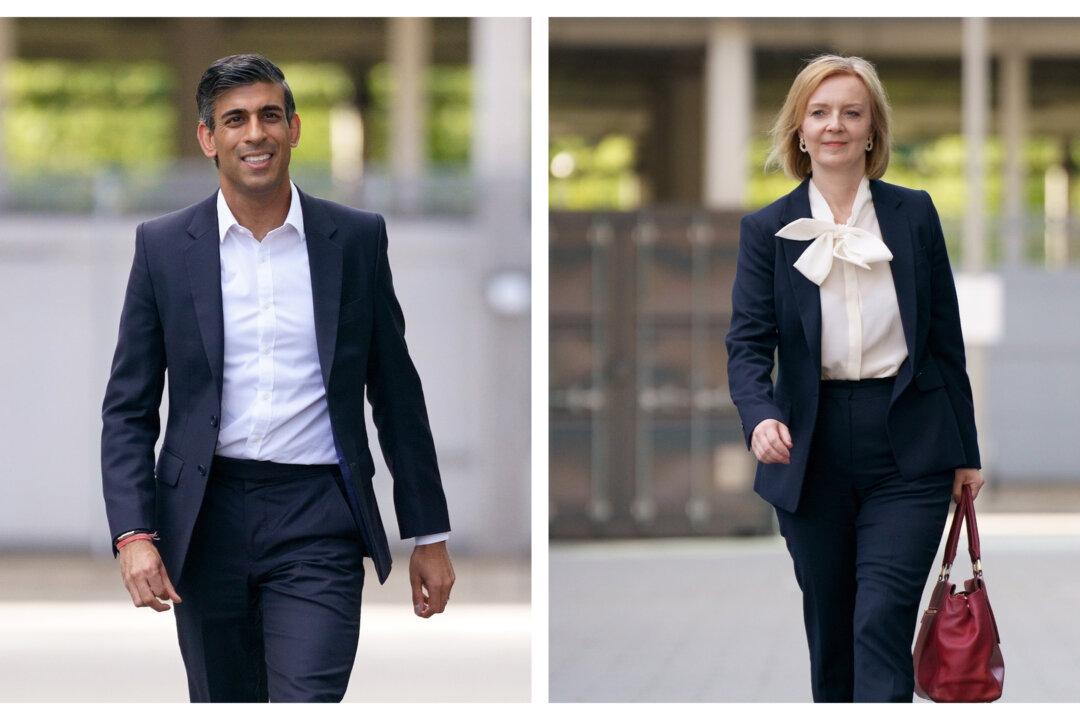Outsider Kemi Badenoch, who said that “we need to reinvigorate the case for free speech” has been knocked out, but the final two candidates Rishi Sunak and Liz Truss have varied records on the topic which is likely to become a battleground in the race to become Britain’s next Prime Minister.
“Sunak as far as I can see has virtually no statements about free speech,” Andrew Tettenborn, common-law and continental jurisdictions scholar and advisor to the Free Speech Union (FSU), told The Epoch Times. “I probably prefer Liz Truss on free speech,” he said, “but I think she’s marginally less bad than Rishi Sunak.”





